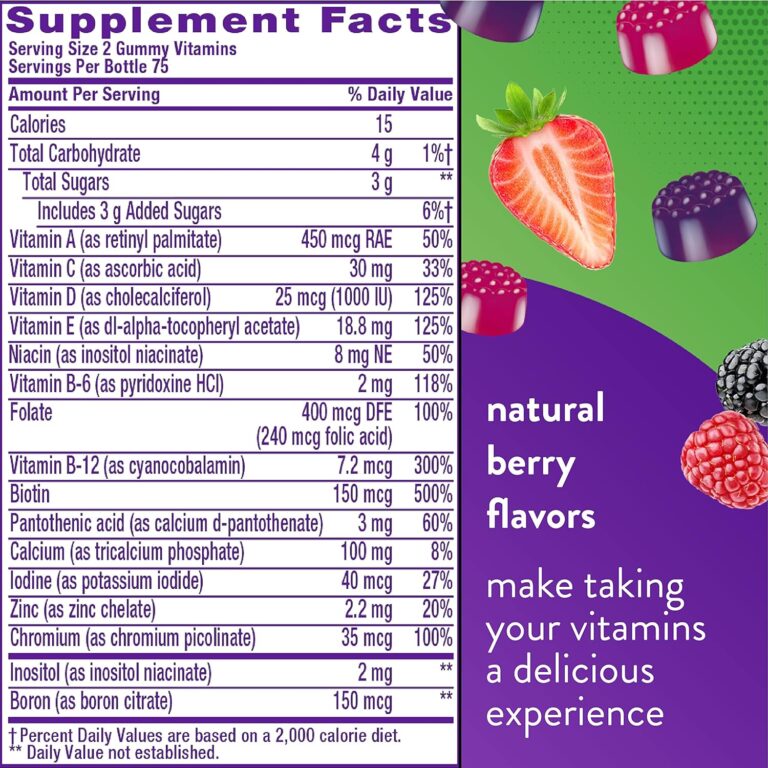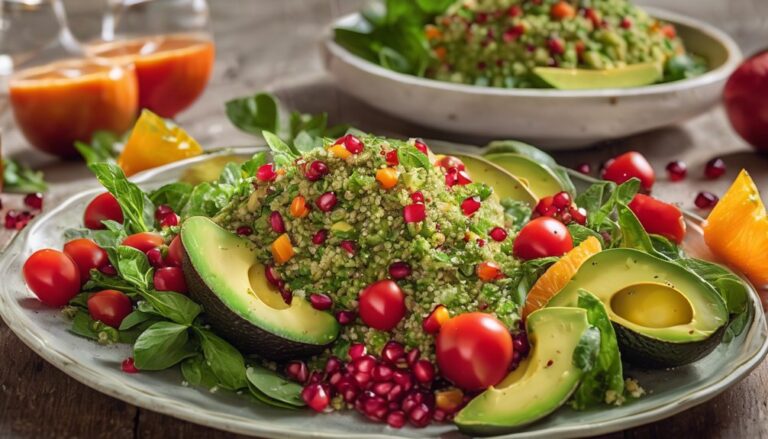What to Eat to Lose Weight
When it comes to weight loss, think of your plate as a canvas where the right ingredients can create a masterpiece. You'll want to focus on lean proteins, whole grains, and a rainbow of fruits and vegetables that not only nourish but also support your weight loss journey. Understanding how to balance these components can make a significant difference, but there's more to it than just choosing the right foods. What else should you consider?
Key Takeaways
- Incorporate lean proteins such as chicken, fish, and beans in every meal to enhance satiety and support muscle maintenance.
- Choose whole grains like brown rice and quinoa to increase fiber intake, stabilize blood sugar, and promote fullness.
- Fill your plate with a variety of fruits and vegetables for their low-calorie, nutrient-dense benefits and high fiber content.
- Include healthy fats like olive oil and avocados in moderation to aid nutrient absorption and provide sustained energy.
- Stay hydrated by drinking water before meals and consuming hydrating foods to help control appetite and boost metabolism.
Understanding Macronutrients and Their Role in Weight Loss
While you may think all calories are created equal, understanding macronutrients—proteins, fats, and carbohydrates—can significantly influence your weight loss journey.
Focusing on macronutrient balance is crucial; each macronutrient plays a unique role in your body. Proteins help build and repair tissues, fats provide essential fatty acids and energy, while carbohydrates fuel your daily activities.
Instead of solely calorie counting, consider how these macronutrients impact your metabolism and satiety. Consuming adequate protein can keep you fuller longer, while healthy fats can support nutrient absorption.
Incorporating Lean Proteins Into Your Diet
Incorporating lean proteins into your diet can be a game-changer for weight loss, as they not only support muscle maintenance but also enhance satiety.
You'll want to focus on high-quality protein sources like chicken, turkey, fish, beans, and low-fat dairy.
Timing your meals can also make a difference; aim to include protein in every meal and snack. This helps stabilize your blood sugar and keeps you feeling full longer, reducing cravings.
Consider starting your day with a protein-rich breakfast, like Greek yogurt or eggs, to kick off your metabolism.
The Power of Whole Grains
Whole grains are essential for a balanced diet, especially when you're aiming to lose weight.
They're packed with nutrients and offer numerous whole grain benefits that can help you shed those extra pounds. Whole grains like brown rice, quinoa, and whole wheat bread are excellent fiber sources, promoting satiety and keeping your digestive system healthy.
When you choose whole grains over refined options, you're not just getting more fiber; you're also stabilizing your blood sugar levels, which can curb those pesky cravings.
Incorporating these grains into your meals can enhance your overall nutritional intake, making it easier to stick to your weight loss goals.
Fruits and Vegetables: Nature's Weight Loss Allies
Eating a variety of fruits and vegetables can significantly support your weight loss journey, as they're low in calories but high in essential nutrients. Incorporating seasonal produce not only enhances flavor but also maximizes nutrient intake.
Embrace the fruit variety; berries, apples, and citrus are fantastic for their antioxidant power. Don't forget the vegetable benefits—leafy greens, peppers, and carrots offer incredible fiber sources that keep you full longer.
By focusing on color diversity, you not only make meals visually appealing but also ensure a broad spectrum of nutrients. Meal prep can help you manage portion control, making it easier to stick to your goals.
Healthy Fats: Finding Balance in Your Meals
While fruits and vegetables play a vital role in weight loss, healthy fats are equally important for achieving a balanced diet. Incorporating healthy oils like olive or avocado oil can enhance your meals and promote satiety.
These fats help your body absorb essential nutrients while providing energy. However, portion control is key; too much fat can lead to excess calorie intake. Aim to include small amounts of healthy fats in each meal, balancing them with lean proteins and fiber-rich foods.
This approach not only supports weight loss but also keeps you feeling satisfied longer. Remember, it's about finding that sweet spot where you can enjoy the benefits of healthy fats without overdoing it. Embrace this balance for a healthier lifestyle!
The Importance of Hydration
How often do you think about the role hydration plays in weight loss? Staying hydrated is crucial for your body's functions and can significantly impact your weight loss journey.
Proper hydration helps with appetite control and can boost your metabolism. Here are some effective hydration strategies to consider:
- Aim for at least 8 cups of water daily to maintain optimal water intake.
- Include hydrating foods like fruits and vegetables in your meals.
- Drink a glass of water before meals to help manage portion sizes.
Meal Planning for Success
Meal planning can be a game-changer when it comes to losing weight effectively. By organizing your meals in advance, you're less likely to make impulsive choices that can derail your progress.
Start by creating a weekly menu that includes a variety of nutritious foods. While grocery shopping, stick to your list to avoid temptation and ensure you have everything you need for healthy meals.
Meal prepping is key—set aside a couple of hours each week to prepare ingredients or even entire meals. This not only saves time but also helps you control portion sizes and ingredients.
Mindful Eating Practices for Weight Loss
Practicing mindful eating can significantly enhance your weight loss efforts, as it encourages a deeper connection with your food. By focusing on your meals, you make conscious choices that support your health goals.
- Savor each bite to appreciate flavors and textures.
- Minimize distractions during meals, such as screens or multitasking.
- Listen to your body's hunger cues to eat when truly hungry.
These mindful meals allow you to enjoy your food more fully and can lead to reduced portion sizes.
You'll likely find yourself feeling satisfied with less. Remember, it's about quality over quantity.
Frequently Asked Questions
Can I Eat Snacks While Trying to Lose Weight?
Absolutely, you can enjoy snacks! Just focus on healthy snack options and practice portion control. Nuts, fruits, and yogurt are great choices that satisfy cravings without derailing your goals. Balance is key, so enjoy mindfully!
How Fast Can I Expect to Lose Weight?
Losing weight is like a steady river; you'll flow smoothly with a caloric deficit. Generally, you can expect to lose 1-2 pounds weekly, but individual results vary based on factors like metabolism and lifestyle.
Is Intermittent Fasting Effective for Weight Loss?
Intermittent fasting can be effective for weight loss. You might enjoy its benefits like improved metabolism and increased fat burning. Different fasting protocols suit various lifestyles, so explore what feels right and sustainable for you.
Should I Avoid Carbs Completely to Lose Weight?
Avoiding carbs completely isn't necessary. Studies show balanced meals with quality carbs can support weight loss. Focus on whole grains and veggies instead of refined sugars, ensuring you're fueling your body while enjoying your food.
How Do Stress and Sleep Affect Weight Loss?
Stress and sleep significantly impact your weight loss journey. Prioritizing stress management techniques and practicing good sleep hygiene can improve your body's metabolism, reduce cravings, and enhance overall well-being, making it easier to achieve your goals.
Conclusion
Incorporating these dietary strategies isn't just a path to weight loss; it's a journey toward vibrant health. By focusing on lean proteins, whole grains, fruits, and healthy fats, you're setting yourself up for success—like striking gold at the end of a rainbow. Remember, hydration and mindful eating are your trusty companions on this quest. With a little planning and commitment, you can transform your meals into powerful tools that help you achieve your weight loss goals sustainably.










